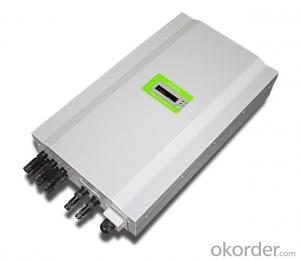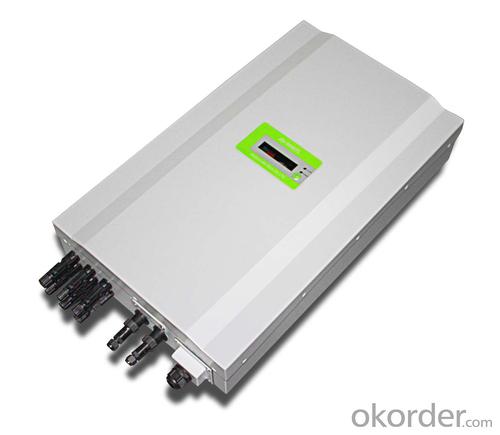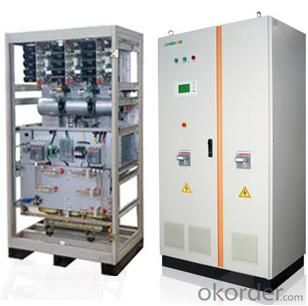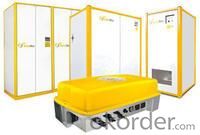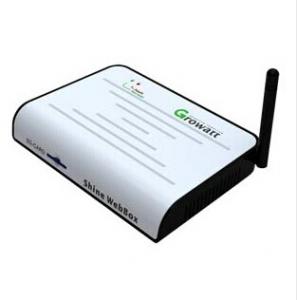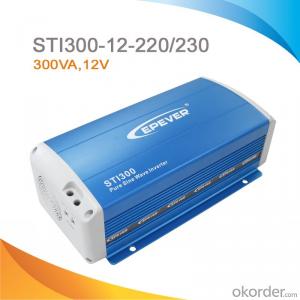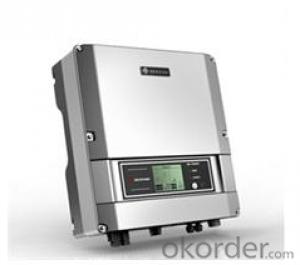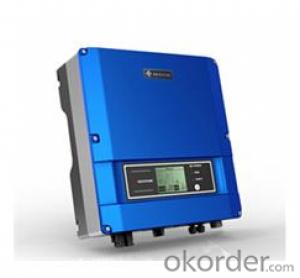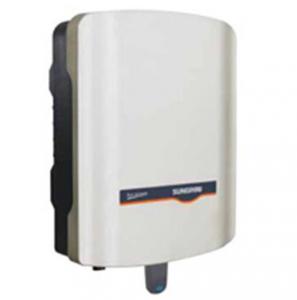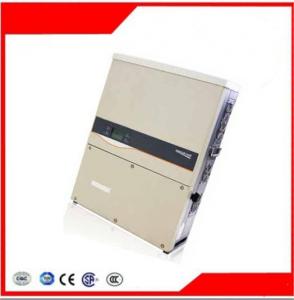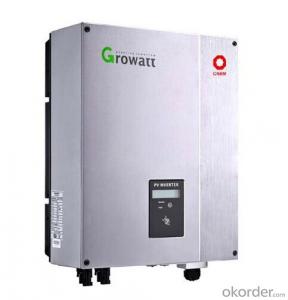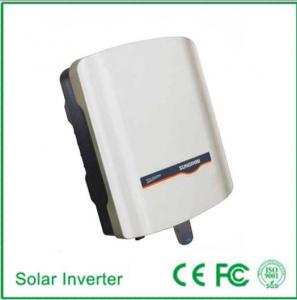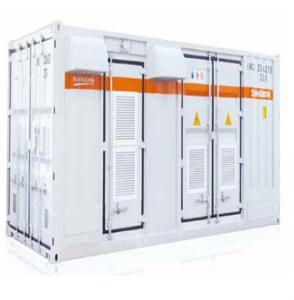LG Solar Inverter NB5KE Grid Connected Inverter Model
- Loading Port:
- China main port
- Payment Terms:
- TT OR LC
- Min Order Qty:
- 3000 watt
- Supply Capability:
- 123900 watt/month
OKorder Service Pledge
OKorder Financial Service
You Might Also Like
NB5kE Scope of Application
NB5kE inverter is suitable for small BAPV grid connected photovoltaic power generation system. Its protection degree is IP65 and can be installed indoor or outdoor to operate in harsh environment conditions.
NB5kE Product Features
Powerful real-time detection and perfect protection.
Double MPPT tracking and >99.5% efficiency.
Active and passive anti-island function.
Designed with no isolation transformer to get higher conversion
NB5kE Efficiency:
Built-in DC switch designed in input side.
Wide MPPT voltage range.
Bilingual language LCD and multi-country safety requirements for option.
Wall fixed installation.
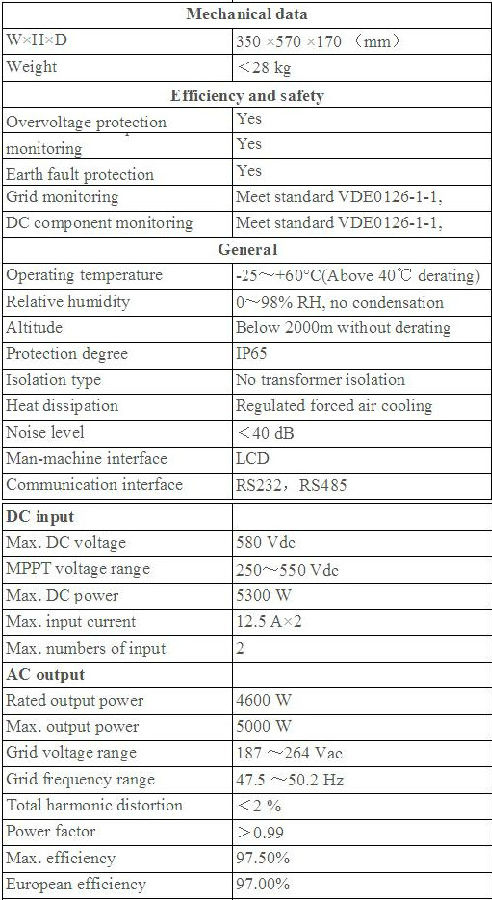
- Q: Can a solar inverter be used in areas with high humidity and salt air exposure?
- Yes, a solar inverter can be used in areas with high humidity and salt air exposure. However, it is important to choose a solar inverter that is specifically designed for such conditions. High humidity can potentially cause corrosion and damage to electronic components, while salt air exposure can lead to accelerated corrosion due to the corrosive nature of salt. Therefore, it is crucial to select an inverter that is made with materials resistant to corrosion, such as stainless steel or coated circuit boards. Additionally, regular maintenance and cleaning of the inverter should be performed to ensure optimal performance and longevity in such environments.
- Q: Can a solar inverter be upgraded or expanded?
- Yes, a solar inverter can be upgraded or expanded. Upgrades may involve adding new features or improving the efficiency of the existing inverter. Expansion typically refers to increasing the capacity of the inverter to accommodate additional solar panels. However, the extent to which an inverter can be upgraded or expanded varies depending on the specific model and manufacturer.
- Q: What are the safety certifications to look for in a solar inverter?
- Some safety certifications to look for in a solar inverter include UL 1741, IEC 62109, and CSA C22.2 No. 107.1. These certifications ensure that the inverter meets specific safety standards, such as protection against electrical shocks, fire hazards, and grid disturbances. It is essential to check for these certifications to ensure the safe and reliable operation of the solar inverter.
- Q: What are the advantages of using a three-phase solar inverter?
- There are several advantages of using a three-phase solar inverter. Firstly, it allows for a more balanced distribution of power between the three phases, resulting in a more efficient use of electricity. This can lead to increased energy production and savings. Additionally, three-phase solar inverters provide a higher power output compared to single-phase inverters, making them suitable for larger installations. They also offer enhanced voltage stability and improved grid integration, ensuring a reliable and stable power supply. Overall, the use of a three-phase solar inverter can optimize energy generation, improve system performance, and provide greater flexibility for solar installations.
- Q: How does a solar inverter ensure safety during maintenance?
- A solar inverter ensures safety during maintenance by automatically disconnecting the system from the grid and de-energizing the circuits. This prevents any potential electrical shocks or accidents while the maintenance personnel work on the system.
- Q: Can a solar inverter be used in harsh weather conditions?
- Yes, solar inverters can be designed and built to withstand harsh weather conditions. Many modern solar inverters are equipped with protective features such as dust and moisture resistance, temperature tolerance, and surge protection. These features make them suitable for operating in extreme temperatures, high humidity, dusty environments, and even during heavy rain or snow. However, it is important to ensure that the chosen inverter is specifically designed for the intended weather conditions to ensure its durability and performance.
- Q: What is the role of a solar inverter in a residential system?
- The role of a solar inverter in a residential system is to convert the direct current (DC) electricity generated by the solar panels into alternating current (AC) electricity that is suitable for use in the home. It also manages the flow of electricity, monitors the system's performance, and ensures safety by providing protection against electrical faults.
- Q: Can a solar inverter be installed indoors or outdoors?
- A solar inverter can be installed both indoors and outdoors, depending on the specific requirements and preferences of the installation. However, it is essential to consider factors such as available space, ventilation, temperature regulation, and protection from environmental elements when deciding on the installation location.
- Q: Can a solar inverter be used with a solar-powered heating system?
- Yes, a solar inverter can be used with a solar-powered heating system. The solar inverter converts the direct current (DC) generated by the solar panels into alternating current (AC) which can be used to power various appliances, including a heating system. This allows the solar panels to provide clean and renewable energy for heating purposes.
- Q: Can a solar inverter be used in extreme weather conditions?
- Yes, solar inverters are designed to withstand extreme weather conditions. They are built to be durable and resistant to factors such as temperature fluctuations, humidity, and harsh weather elements. However, it is always recommended to consult the manufacturer's guidelines to ensure proper installation and protection measures are in place for specific weather conditions.
Send your message to us
LG Solar Inverter NB5KE Grid Connected Inverter Model
- Loading Port:
- China main port
- Payment Terms:
- TT OR LC
- Min Order Qty:
- 3000 watt
- Supply Capability:
- 123900 watt/month
OKorder Service Pledge
OKorder Financial Service
Similar products
Hot products
Hot Searches
Related keywords
